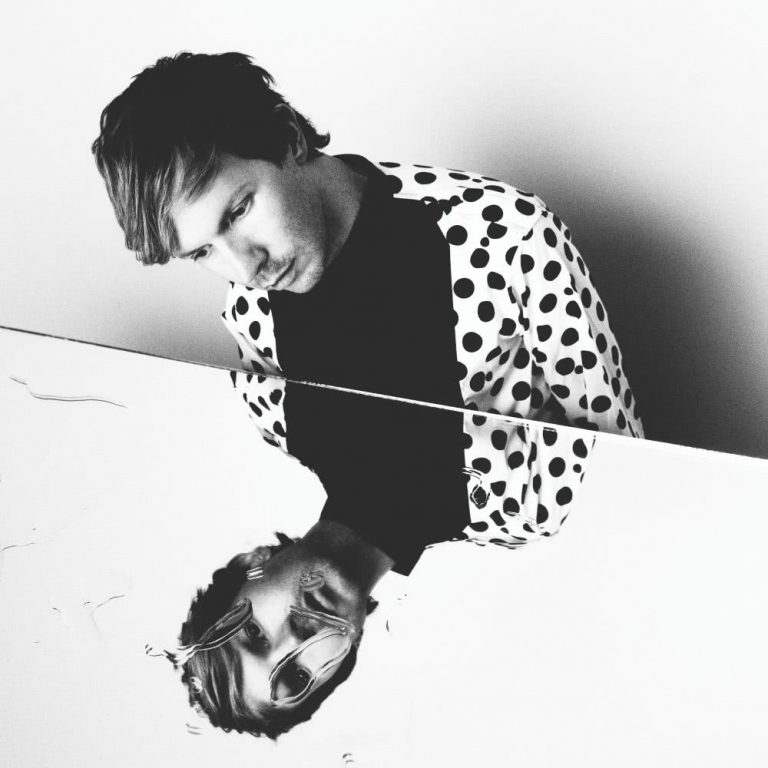For over two decades, Beck Hansen has made music that skirts the edges of conventional genre classification, liberally appropriating from different styles while maintaining a unique well, Beck-ness that has carried a thread of consistency throughout a dozen studio albums.
His 1993 breakout single ‘Loser’ paired folk guitars, hip-hop beats, freeform lyrics and an indifferent attitude that would prove an unlikely hit – an apathetic anthem for a disenchanted MTV generation. On his most recent album, last year’s exuberant Colors, Beck swings the dial almost completely in the other direction, turning to the effervescence of classic pop records to guide its sonic motif. It’s also a vivid departure from his previous album, 2014’s Morning Phase, a melancholic and mostly acoustic affair that picked up where 2002 heartbreaker Sea Change left off.
Colors took around four years to complete, with Beck and executive producer Greg Kurstin having the freedom to experiment and trial with abundance. “I think traditionally when I’d go in to make a record, I’d either have songs or I’d go in and just sort of see what comes out and go with it,” says Beck.
I’ve always wanted to do a record where we really took it as far as it felt like we could.
“This record was very different in that there was a real sense of throwing everything on the table, every possible idea; trying it ten different ways and really exploring every iteration of a song. It was different. I had the luxury of time. I’ve always wanted to do a record where we really took it as far as it felt like we could.”
While Morning Phase was recorded in a fairly traditional setting, Beck says that on Colors there was a deliberate effort to take the ethos of “real musicians” playing while simultaneously capturing the immediacy and power of the modern pop machine. “It’s still played, it’s still live musicians, but we’re sort of post-digital at this point and all music you hear on the radio is probably 90 per cent digital – it’s all coming in a self-contained computerised world, so it has a certain punchiness and frequency spectrum that you can’t really get by sticking a mic in front of a guitar.”
The end result is that Colors is a layered, sonically complex record, but also likely Beck’s most accessible album to date – a marriage of polished production and vibrant character. The album also takes audible influence from what Beck calls “the apotheosis of ’80s pop production, the maturing of pop music into the era of something that was a bit more sophisticated”. There’s cues from the likes of Michael Jackson and Peter Gabriel, as well as Bowie – whose chameleonic approach can’t help but come to mind when considering Beck’s sonic oeuvre.
“The way this record sounds was something I always wanted to do. It’s a bit more technically accomplished and for lack of a better word – state of the art –which I was always a little bit afraid of.”
Given that his earliest works were rooted in an intentionally lo-fi, slacker aesthetic, Beck’s initial trepidation about the album’s “accomplished” sound is understandable. “I grew up in an era where that was equated with something that didn’t have soul or personality. But, you know, Michael Jackson’s Off The Wall is an incredibly accomplished and polished record but it does have a lot of soul and atmosphere.”
This month, Beck will return to Australia as part of the inaugural Sydney City Limits festival, bringing an extensive backing band as part of his “energetic” live show.
“When we were doing Morning Phase we’d come out and I think some people coming to hear that record were probably a little surprised, because we try to put a lot of energy and fun into the shows. We just engage with the audience a lot, try to get people on their feet. I think the spirit of [Colors] is a reflection of the kind of shows we’ve been playing for years.”
Listening to Colors, it’s understandable what Beck means when he says it reflects the vivacity of the live shows. The album is aggressively upbeat, an intentional choice made after the introspective Morning Phase.
I got to perform with Paul McCartney a while back and we did a couple early Beatles songs – there’s such joy in those songs.
“I wanted it to have something that was just a purely kind of uplifting joyous feeling – the effervescence of a great pop record,” says Beck. “There could have been an argument to throwing a few songs in that went other places to kind of balance it out, but I’d just done Morning Phase so I felt like I’d really explored that territory. At the same time, I needed to do it in my own way where it felt true to me and felt like something I could credibly get up and sing and own.”
For Beck, there’s a certain satisfaction in releasing Colors after years of covering pop classics live. “Back in the ’90s we’d play everything from ‘Electric Avenue’ to ‘Blue Monday’ to ‘Raspberry Beret’. There’s a sort of joy when you get to play those songs; you think ‘God, I wish I had songs like this’. I got to perform with Paul McCartney a while back and we did a couple early Beatles songs – there’s such joy in those songs. This is my attempt to capture some of that in my own style.”
Beck will play Sydney City Limits on Saturday February 24 at Centennial Park with Car Seat Headrest, Justice, Grace Jones, Gang Of Youths and many more.

































